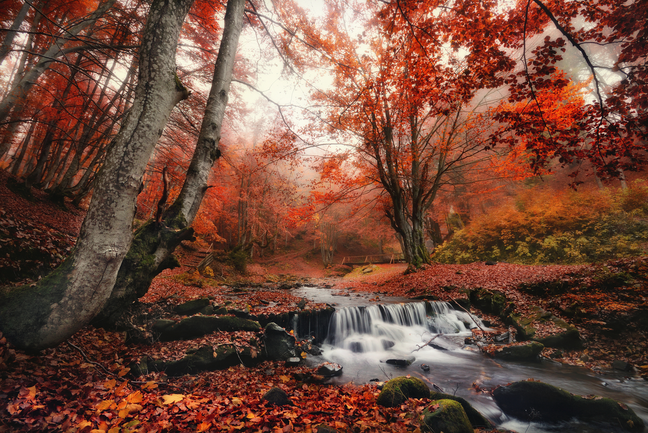|
There is no Frigate like a Book
To take us Lands away Nor any Coursers like a Page Of prancing Poetry – This Traverse may the poorest take Without oppress of Toll – How frugal is the Chariot That bears the Human Soul – - Emily Dickinson |
The Panther
The panther is like a leopard, Except it hasn't been peppered. Should you behold a panther crouch, Prepare to say Ouch. Better yet, if called by a panther, Don't anther. - Ogden Nash |
|
Over the Land is April
Over the land is April, Over my heart a rose; Over the high, brown mountain The sound of singing goes. Say, love, do you hear me, Hear my sonnets ring? Over the high, brown mountain, Love, do you hear me sing? By highway, love, and byway The snows succeed the rose. Over the high, brown mountain The wind of winter blows. Say, love, do you hear me, Hear my sonnets ring? Over the high, brown mountain I sound the song of spring, I throw the flowers of spring. Do you hear the song of spring? Hear you the songs of spring? Robert Louis Stevenson |
Forgiveness
My heart was heavy, for its trust had been Abused, its kindness answered with foul wrong; So, turning gloomily from my fellowmen, One summer Sabbath day I strolled among the green mounds of the village burial place; Where, pondering how all human love and hate Find one sad level; and how, soon or late, Wronged and wrong-doer, each with meekened face, And cold hands folded over a still heart, Pass the green threshold of our common grave, Whither all footsteps tend, whence none depart, Awed for myself, and pitying my race, Our common sorrow, like a mighty wave, Swept all my pride away, and trembling I forgave! John Greenleaf Whittier |
|
Love of Country
from “The Lay of the Last Minstrel”(1805) Breathes there the man, with soul so dead, Who never to himself hath said, This is my own, my native land! Whose heart hath ne’er within him burn’d, As home his footsteps he hath turn’d, From wandering on a foreign strand! If such there breathe, go, mark him well; For him no Minstrel raptures swell; High though his titles, proud his name, Boundless his wealth as wish can claim; Despite those titles, power, and pelf, The wretch, concentred all in self, Living, shall forfeit fair renown, And, doubly dying, shall go down To the vile dust, from whence he sprung, Unwept, unhonour’d, and unsung. Walter Scott |
Faithfulness
Sonnet 116 Let me not to the marriage of true minds Admit impediments. Love is not love Which alters when it alteration finds, Or bends with the remover to remove. O no! it is an ever-fixed mark That looks on tempests and is never shaken; It is the star to every wand'ring bark, Whose worth's unknown, although his height be taken. Love's not Time's fool, though rosy lips and cheeks Within his bending sickle's compass come; Love alters not with his brief hours and weeks, But bears it out even to the edge of doom. If this be error and upon me prov'd, I never writ, nor no man ever lov'd. William Shakespeare |
|
Courage! What if the snows are deep,
And what if the hills are long and steep, And the days are short and the nights are long, And the good are weak and the bad are strong. Courage! The snow is a field of play, And the longest hill has a well-worn way, There are songs that shorten the longest night, There’s a day when wrong shall be ruled right, So courage! Courage! ‘Tis never so far From a plodded path to a shining star. Unknown Author |
Invictus
Out of the night that covers me, Black as the pit from pole to pole, I thank whatever gods may be For my unconquerable soul. In the fell clutch of circumstance I have not winced nor cried aloud. Under the bludgeonings of chance My head is bloody but unbowed. Beyond this place of wrath and tears Looms but the Horror of the shade, And yet the menace of the years Finds and shall find me unafraid. It matters not how strait the gate, How charged with punishments the scroll, I am the master of my fate, I am the captain of my soul. William Ernest Henley |
|
Snowflakes
And did you know That every flake of snow That forms so high In the grey winter sky And falls so far Is a bright six-pointed star? Each crystal grows A flower as perfect as a rose. Lace could never make The patterns of a flake. No brooch Of figured silver could approach Its delicate craftsmanship. And think: Each pattern is distinct. Of all the snowflakes floating there – The million million in the air – None is the same. Each star Is newly forged, as faces are, Shaped to its own design Like yours and mine. And yet… each one Melts when its flight is done; Holds frozen loveliness A moment, even less; Suspends itself in time – And passes like a rhyme. Clive Sansom |
|
Song for Autumn
In the deep fall don’t you imagine the leaves think how comfortable it will be to touch the earth instead of the nothingness of air and the endless freshets of wind? And don’t you think the trees themselves, especially those with mossy, warm caves, begin to think of the birds that will come – six, a dozen – to sleep inside their bodies? And don’t you hear the goldenrod whispering goodbye, the everlasting being crowned with the first tuffets of snow? The pond vanishes, and the white field over which the fox runs so quickly brings out its blue shadows. And the wind pumps its bellows. And at evening especially, the piled firewood shifts a little, longing to be on its way. Mary Oliver |
|
If
If you can keep your head when all about you Are losing theirs and blaming it on you, If you can trust yourself when all men doubt you, But make allowance for their doubting too; If you can wait and not be tired by waiting, Or being lied about, don’t deal in lies, Or being hated, don’t give way to hating, And yet don’t look too good, nor talk too wise: If you can dream—and not make dreams your master; If you can think—and not make thoughts your aim; If you can meet with Triumph and Disaster And treat those two impostors just the same; If you can bear to hear the truth you’ve spoken Twisted by knaves to make a trap for fools, Or watch the things you gave your life to, broken, And stoop and build ’em up with worn-out tools: If you can make one heap of all your winnings And risk it on one turn of pitch-and-toss, And lose, and start again at your beginnings And never breathe a word about your loss; If you can force your heart and nerve and sinew To serve your turn long after they are gone, And so hold on when there is nothing in you Except the Will which says to them: ‘Hold on!’ If you can talk with crowds and keep your virtue, Or walk with Kings—nor lose the common touch, If neither foes nor loving friends can hurt you, If all men count with you, but none too much; If you can fill the unforgiving minute With sixty seconds’ worth of distance run, Yours is the Earth and everything that’s in it, And—which is more—you’ll be a Man, my son! Rudyard Kipling |
|
Johnny Appleseed
Of Jonathan Chapman Two things are known, That he loved apples, That he walked alone. At seventy-odd He was gnarled as could be, But ruddy and sound As a good apple tree. For fifty years over Of harvest and dew, He planted his apples Where no apples grew. The winds of the prairie Might blow through his rags, But he carried his seeds In the best deerskin bags. From old Ashtabula To frontier Fort Wayne, He planted and pruned And he planted again. He had not a hat To encumber his head. He wore a tin pan On his white hair instead. He nested with owls, And with bear-cub and possum, And knew all his orchards Root, tendril and blossom. A fine old man, As ripe as a pippin, His heart still light, And his step still skipping. The stalking Indian, The beast in its lair Did no hurt While he was there. For they could tell, As wild things can, That Jonathan Chapman Was God's own man. Why did he do it? We do not know. He wished that apples Might root and grow. He has no statue. He has no tomb. He has his apple trees Still in bloom. Consider, consider, Think well upon The marvelous story Of Appleseed John. Rosemary Carr Benét |
|
Leisure
What is this life if, full of care, We have no time to stand and stare. No time to stand beneath the boughs And stare as long as sheep or cows. No time to see, when woods we pass, Where squirrels hide their nuts in grass. No time to see, in broad daylight, Streams full of stars, like skies at night. No time to turn at Beauty's glance, And watch her feet, how they can dance. No time to wait till her mouth can Enrich that smile her eyes began. A poor life this if, full of care, We have no time to stand and stare. William Henry Davies |
|
Manners
For a Child of 1918 My grandfather said to me as we sat on the wagon seat, "Be sure to remember to always speak to everyone you meet." We met a stranger on foot. My grandfather's whip tapped his hat. "Good day, sir. Good day. A fine day." And I said it and bowed where I sat. Then we overtook a boy we knew with his big pet crow on his shoulder. "Always offer everyone a ride; don't forget that when you get older," my grandfather said. So Willy climbed up with us, but the crow gave a "Caw!" and flew off. I was worried. How would he know where to go? But he flew a little way at a time from fence post to fence post, ahead; and when Willy whistled he answered. "A fine bird," my grandfather said, "and he's well brought up. See, he answers nicely when he's spoken to. Man or beast, that's good manners. Be sure that you both always do." When automobiles went by, the dust hid the people's faces, but we shouted "Good day! Good day! Fine day!" at the top of our voices. When we came to Hustler Hill, he said that the mare was tired, so we all got down and walked, as our good manners required. Elizabeth Bishop |
IX.
I go by a field where once I cultivated a few poor crops. It is now covered with young trees, for the forest that belongs here has come back and reclaimed its own. And I think of all the effort I have wasted and all the time, and of how much joy I took in that failed work and how much it taught me. For in so failing I learned something of my place, something of myself, and now I welcome back the trees. Wendell Berry |
|
If I can stop one heart from breaking
If I can stop one heart from breaking, I shall not live in vain; If I can ease one life the aching, Or cool one pain, Or help one fainting robin Unto his nest again, I shall not live in vain. Emily Dickinson |
Mercy
The quality of mercy is not strained; It droppeth as the gentle rain from heaven Upon the place beneath. It is twice blest; It blesseth him that gives and him that takes: 'T is mightiest in the mightiest; it becomes The throned monarch better than his crown: His sceptre shows the force of temporal power, The attribute to awe and majesty, Wherein doth sit the dread and fear of kings; But mercy is above this sceptred sway; It is enthronèd in the hearts of kings, It is an attribute to God himself; And earthly power doth then show likest God's When mercy seasons justice. Therefore, Jew, Though justice be thy plea, consider this, That, in the course of justice, none of us Should see salvation: we do pray for mercy; And that same prayer doth teach us all to render The deeds of mercy. I have spoke thus much To mitigate the justice of thy plea; Which if thou follow, this strict court of Venice Must needs give sentence 'gainst the merchant there. William Shakespeare, The Merchant of Venice |
|
I Hear America Singing
I hear America singing, the varied carols I hear, Those of mechanics, each one singing his as it should be blithe and strong, The carpenter singing his as he measures his plank or beam, The mason singing his as he makes ready for work, or leaves off work, The boatman singing what belongs to him in his boat, the deckhand singing on the steamboat deck, The shoemaker singing as he sits on his bench, the hatter singing as he stands, The wood-cutter’s song, the ploughboy’s on his way in the morning, or at noon intermission or at sundown, The delicious singing of the mother, or of the young wife at work, or of the girl sewing or washing, Each singing what belongs to him or her and to none else, The day what belongs to the day—at night the party of young fellows, robust, friendly, Singing with open mouths their strong melodious songs. |
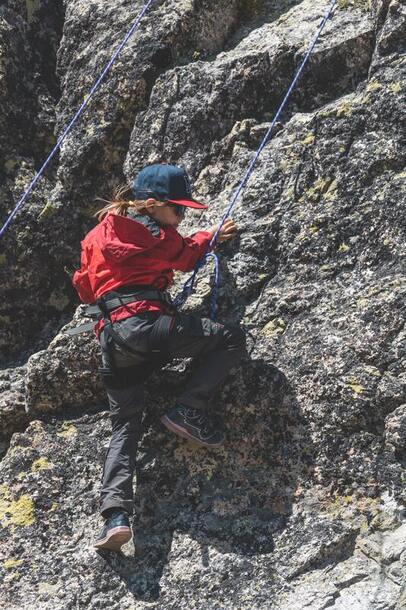
|
The Mist and All
I like the fall, The mist and all. I like the night owl's Lonely call -- And wailing sound Of wind around. I like the gray November day, And bare, dead boughs That coldly sway Against my pane. I like the rain. I like to sit And laugh at it -- And tend My cozy fire a bit. I like the fall -- The mist and all. Dixie Willson |
November Morning
A tingling, misty marvel Blew hither in the night, And now the little peach-trees Are clasped in frozen light. Upon the apple-branches An icy film is caught, With trailing threads of gossamer In pearly patterns wrought. The autumn sun, in wonder, Is gayly peering through This silver-tissued network Across the frosty blue. The weather-vane is fire-tipped, The honeysuckle shows A dazzling icy splendor, And crystal is the rose. Around the eaves are fringes Of icicles that seem To mock the summer rainbows With many-colored gleam. Along the walk, the pebbles Are each a precious stone; The grass is tasseled hoarfrost, The clover jewel-sown. Such sparkle, sparkle, sparkle Fills all the frosty air, Oh, can it be that darkness Is ever anywhere! Evaleen Stein |
|
October
O hushed October morning mild, Thy leaves have ripened to the fall; Tomorrow’s wind, if it be wild, Should waste them all. The crows above the forest call; Tomorrow they may form and go. O hushed October morning mild, Begin the hours of this day slow. Make the day seem to us less brief. Hearts not averse to being beguiled, Beguile us in the way you know. Release one leaf at break of day; At noon release another leaf; |
One from our trees, one far away. Retard the sun with gentle mist; Enchant the land with amethyst. Slow, slow! For the grapes’ sake, if they were all, Whose leaves already are burnt with frost, Whose clustered fruit must else be lost-- For the grapes’ sake along the wall. Robert Frost |
|
June
The sun is rich And gladly pays In golden hours, Silver days, And long green weeks That never end. School’s out. The time Is ours to spend. |
There’s Little League, Hopscotch, the creek, And, after supper, Hide-and-seek. The live-long light Is like a dream, And freckles come Like flies to cream. John Updike |
|
Reason, indeed, may oft complain For Nature’s sad reality, And tell the suffering heart how vain Its cherished dreams must always be; And Truth may rudely trample down The flowers of Fancy, newly-blown:When weary with the long day’s care, And earthly change from pain to pain, And lost, and ready to despair, Thy kind voice calls me back again: Oh, my true friend! I am not lone, While then canst speak with such a tone! So hopeless is the world without; The world within I doubly prize; Thy world, where guile, and hate, and doubt, And cold suspicion never rise; Where thou, and I, and Liberty, Have undisputed sovereignty. What matters it, that all around Danger, and guilt, and darkness lie, If but within our bosom’s bound We hold a bright, untroubled sky, Warm with ten thousand mingled rays Of suns that know no winter days? |
But thou art ever there, to bring The hovering vision back, and breathe New glories o’er the blighted spring, And call a lovelier Life from Death. And whisper, with a voice divine, Of real worlds, as bright as thine. I trust not to thy phantom bliss, Yet, still, in evening’s quiet hour, With never-failing thankfulness, I welcome thee, Benignant Power; Sure solacer of human cares, And sweeter hope, when hope despairs! |
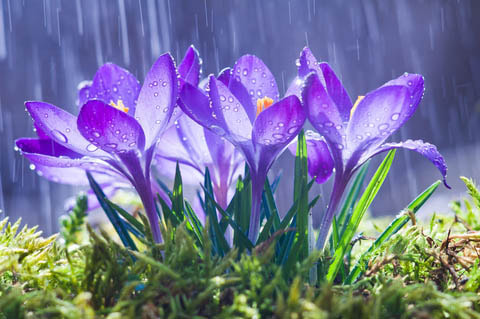
|
March Weather
|
Wind in pines
wind on water wind in rushes wind on feather |
Sun in leaves
sun on loch sun in reeds sun on duck |
Rain in trees
rain on river rain in moss rain on eider |
All one morning
all together in an hour March weather. Tessa Ransford Published in Sing a Song of Seasons, Fiona Waters, ed |

|
The Snow
It sifts from leaden sieves, It powders all the wood, It fills with alabaster wool The wrinkles of the road. It makes an even face Of mountain and of plain, -- Unbroken forehead from the east Unto the east again. It reaches to the fence, It wraps it, rail by rail, Till it is lost in fleeces; It flings a crystal veil On stump and stack and stem, -- The summer's empty room, Acres of seams where harvests were, Recordless, but for them. It ruffles wrists of posts, As ankles of a queen, -- Then stills its artisans like ghosts, Denying they have been. by Emily Dickinson |

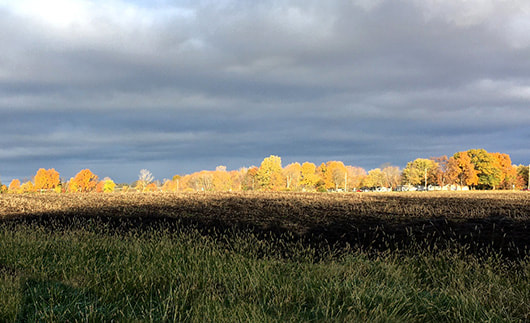
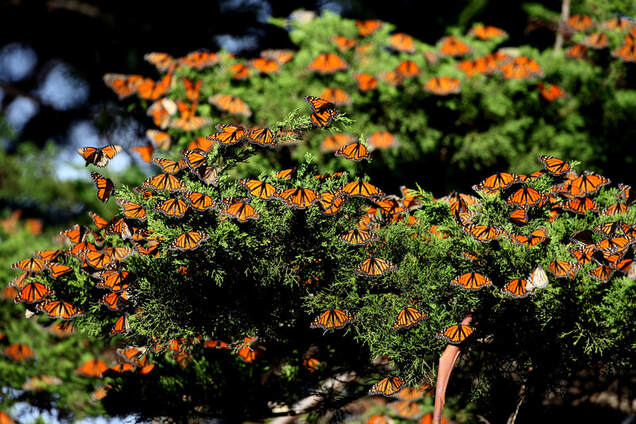


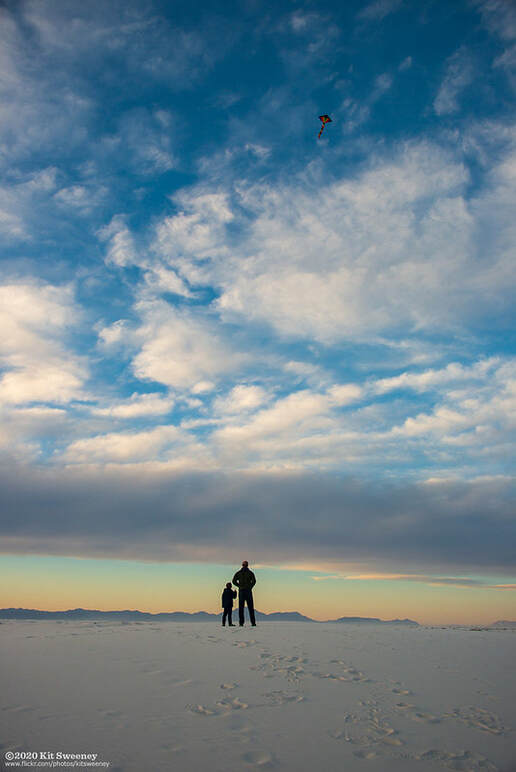
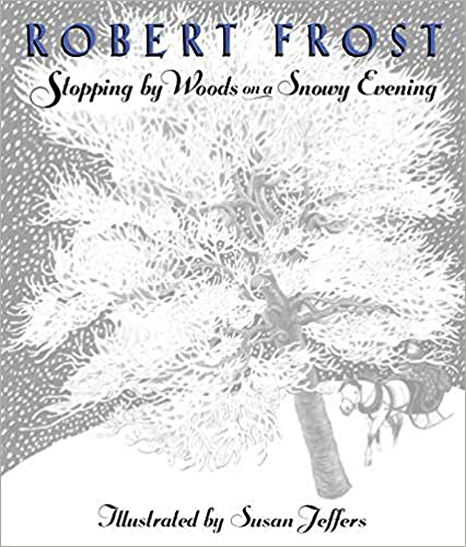
|
The First Christmas
by Michael R. Burch ’Twas in a land so long ago . . . the lambs lay blanketed in snow and little children everywhere sat and watched warm embers glow and dreamed (of what, we do not know). And THEN—a star appeared on high, The brightest man had ever seen! It made the children whisper low in puzzled awe (what did it mean?). It made the wooly lambkins cry. For far away a new-born lay, warm-blanketed in straw and hay, a lowly manger for his crib. The cattle mooed, distraught and low, to see the child. They did not know it now was Christmas day! |
Chanukah Dreams
Judith Ish-Kishor Chanukah I think most dear Of the feasts of all the year. I could sit and watch all night Every twinkling baby light. Father lights the first one—green; Hope it always seems to mean; Hope and Strength to glow anew In the heart of every Jew. Jacob lights the blue for Truth. Pink for Love is lit by Ruth. Then the white one falls to me, White that shines for Purity. How the story of those days Fills my wondering heart with praise! And in every flame one sees The heroic Maccabees. |
